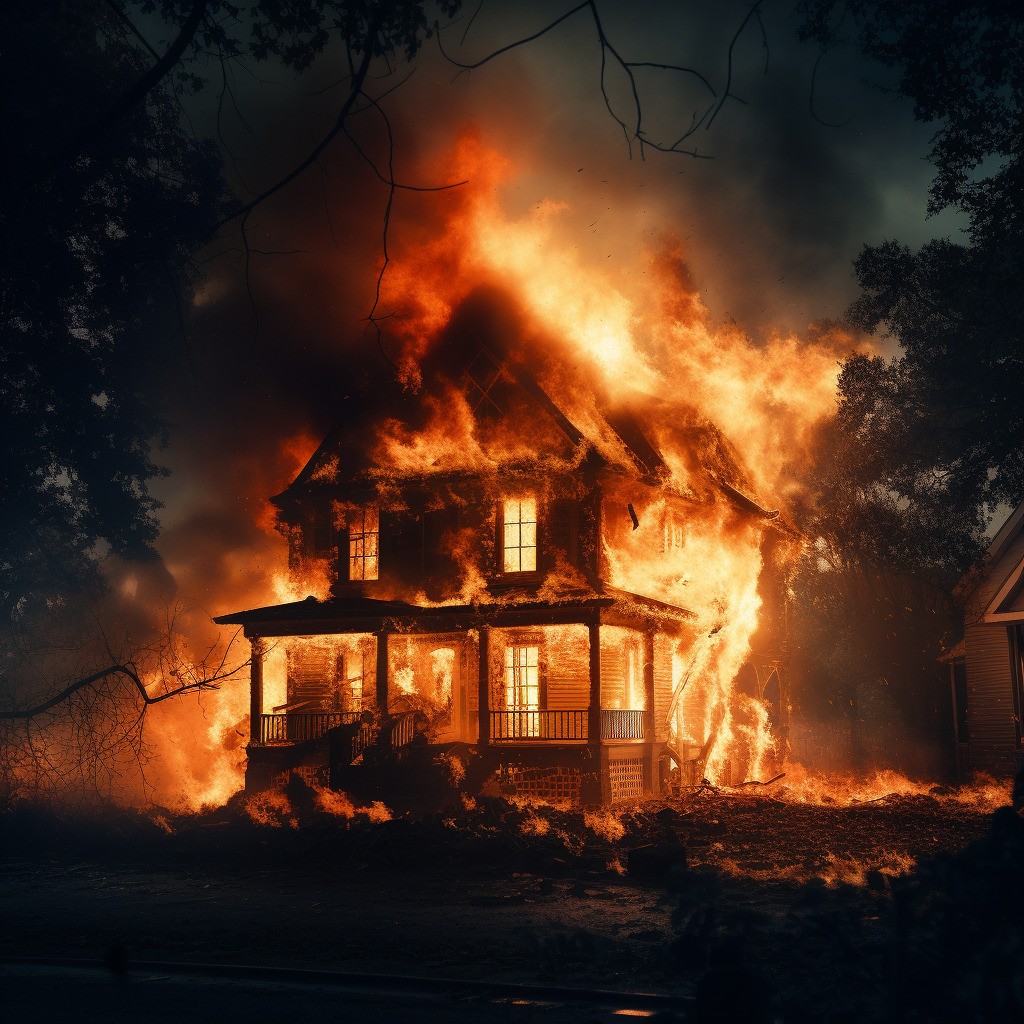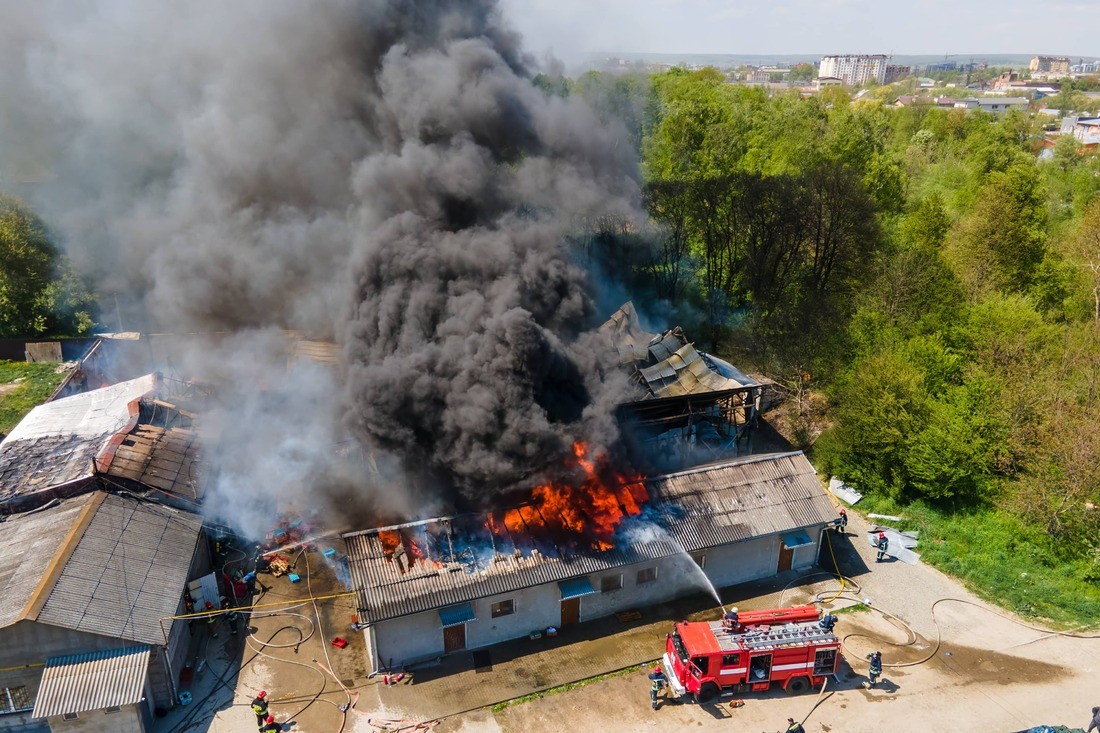
Introduction
Fire damage can have devastating effects on residential and commercial properties. In addition to the destruction caused by flames, the aftermath of a fire can lead to the growth of mold and other hazardous substances. Restoring properties after a fire is essential to ensure the safety and well-being of occupants and to prevent further damage. This article will explore the topic of fire damage and mold remediation and provide comprehensive information from various angles.
Understanding Fire Damage

Fire damage refers to the destruction caused by flames, heat, smoke, and other byproducts of a fire. Fire can cause structural damage to buildings, including weakened foundations, compromised walls and floors, and destroyed roofing. The intensity of the flames and the time it takes to extinguish the fire can greatly impact the extent of the damage.
In addition to structural damage, fires can also have detrimental effects on personal belongings, furniture, appliances, and other items within the property. Smoke, soot, and ash can penetrate surfaces and leave behind stains and unpleasant odors. Electrical systems, plumbing, and HVAC systems may also be affected by fire damage.
Restoring Properties After a Fire
Restoration after a fire involves the process of repairing and rebuilding damaged structures and restoring the affected areas to their pre-fire condition. It is important to engage the services of a professional fire damage restoration company to ensure thorough and efficient restoration.
The restoration process typically involves the following steps:

1. Assessment and Damage Evaluation
A thorough assessment of the property is conducted to determine the extent of the fire damage. This includes evaluating the structural integrity, identifying areas affected by smoke and soot, and assessing the condition of personal belongings and furniture.
2. Emergency Mitigation
Immediate action is taken to prevent further damage and secure the property. This may involve boarding up windows, tarping roofs, and extracting water if firefighting efforts resulted in water damage.
3. Cleaning and Decontamination
Smoke, soot, and ash residues are carefully cleaned from surfaces and belongings. Specialized equipment and cleaning agents are used to eliminate odors and prevent further damage. Air scrubbers and ozone generators may be employed to improve air quality.
4. Structural Repairs and Reconstruction
Damaged structures are repaired or rebuilt, ensuring that the property is structurally sound and safe to inhabit. This may involve replacing drywall, flooring, and roofing, as well as repairing electrical and HVAC systems.
5. Mold Remediation
Mold growth is a common consequence of fire damage, as the moisture from firefighting efforts can create an ideal environment for mold to thrive. Mold remediation involves identifying and eliminating mold colonies to prevent further damage and protect the health of occupants.
6. Odor Removal
Specialized techniques, such as thermal fogging and ozone treatment, may be used to remove lingering smoke odors from the property.
7. Final Inspection and Certification
Once the restoration is complete, a final inspection is conducted to ensure that all necessary repairs and remediation have been carried out. Certifications may be provided to verify that the property is safe and habitable.
The Importance of Fire Damage Restoration
Restoring properties after a fire is crucial for several reasons:
1. Health and Safety
Fire damage can leave behind hazardous substances, including toxic chemicals, soot particles, and mold. Proper restoration ensures the removal of these substances, protecting the health and safety of occupants.
2. Preventing Further Damage
Without prompt restoration, fire damage can worsen over time. Structural elements may weaken, mold may spread, and odors may become more difficult to eliminate. Timely restoration mitigates further damage and prevents costly repairs down the line.
3. Insurance Claims
Insurance companies often require proof of fire damage restoration before processing insurance claims. Engaging professional restoration services and properly documenting the restoration process can help facilitate the insurance claims process.
Fire Damage and Mold Remediation Services
JGW Group Water Damage Restoration Deerfield Beach specializes in fire damage and mold remediation services. They have years of experience in handling fire damage restoration projects and employ highly trained professionals who utilize advanced techniques and equipment to restore properties to their pre-fire condition.
As a trusted fire damage restoration company, JGW Group Water Damage Restoration Deerfield Beach understands the urgency and sensitivity of fire damage situations. They offer a comprehensive range of services, including:
- Fire Damage Cleanup and Restoration
- Smoke and Soot Removal
- Mold Remediation
- Structural Repairs
- Content Cleaning and Restoration
- Odor Removal
To learn more about their fire damage restoration services, visit https://jgwgroupwaterdamagerestoration.com/deerfield-beach-fl/.
Important Facts and Statistics
- 2019 saw a 43% decrease in structure fire deaths in one- or two-family homes and a 63% decrease in fire deaths in apartments compared to 1980. source
- 38 home fire fatalities occurred in 2023. source
- The risk of death or injury from fire is not the same for everyone. source
- Carbon monoxide is the chemical result of incompletely burned fuel sources such as gasoline. source
- In 2018, public fire departments responded to an estimated 1,318,500 fires in the United States, of which 499,000 occurred in structures, 181,500 occurred in vehicles, and 607,000 occurred in outside properties. source
- A fire department responds to a fire somewhere in the United States every 24 seconds. source
Frequently Asked Questions (FAQ)
What does fire damage restoration involve?
Why is prompt restoration after a fire important?
Fire damage and mold remediation are critical services for restoring properties after a fire. By engaging professional restoration services, property owners can ensure the safety, well-being, and long-term viability of their properties.



